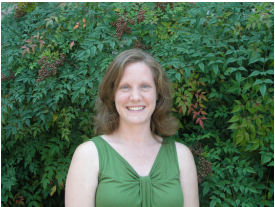|
By Amy Milsom, See the Triumph Guest Blogger School-age children and adolescents unfortunately are exposed to many types of violence on a regular basis – we only need to look to the news to find examples. Most students have witnessed or experienced bullying at some point in their lives, often at school, but sometimes at home or in the community. Other students might be trying to cope with things like being abused by their boyfriends or girlfriends or witnessing or experiencing violence in their homes. School counselors are a good resource for parents and students to turn to in relation to violence. Their job is to look out for and offer support to the students in their school. How can school counselors help? Well, there are a number of ways: 1. School counselors can offer support and counseling to students who have experienced or witnessed violence. If a student wants to talk about how to get out of a violent relationship, school counselors can help them explore options. If a student has experienced violence or bullying in school or at home, school counselors can help them report those incidents when needed. They also can provide counseling to help students cope with their experiences or learn how to respond to those who hurt them. They might work with students individually, or in situations where a number of students are dealing with similar concerns, they might pull together small groups of students who can serve as supports for each other. 2. School counselors also can help students who act as bullies or who exhibit violent behavior – and can help their parents as well. Nobody wants to admit that their child is a bully, but many children and adolescents exhibit violent behavior at school and at home, and parents often feel at a loss about how to help. They might even feel embarrassed that they cannot control their child. Although sometimes there are things parents can and should do in order to provide more structure or more consistently enforce rules, in most cases there are other reasons that students act violently. School counselors can help parents understand their child’s behavior, determine if there are any strategies they could implement at home to make a difference, and meet with the student as needed in order to address the behaviors. 3. Although the types of activities school counselors offer will vary from school to school, most will engage in what are referred to as preventative or educational activities. For example, elementary school counselors might offer classroom lessons to students related to topics like helping them learn how to recognize and deal with bullying or how to manage anger in healthy ways. Middle and high school counselors might focus more on sharing information related to safe and healthy relationships. The intent of any lessons would be to share information or teach students skills that hopefully would help them either avoid or be more prepared to cope with violence-related situations in the future. 4. School counselors also serve as a point of contact and source of information for parents. They might offer parent workshops on topics related to violence or share information through newsletters or on their websites. Through individual meetings with parents, school counselors help clarify school policies related to bullying and violence, and they also can provide information to parents related to how to help their child, what warning signs to look for, and when they might seek additional help for their child or for themselves. 5. One final way that school counselors can help is to point parents and students to resources in the community. For example, they can connect families to community resources related to domestic violence or make referrals to mental health counselors who can provide long-term therapy related to victims of abuse and violence or to students who exhibit violent behaviors. The main point is that school counselors are available to help all students – and parents should feel comfortable seeking out their assistance if they have questions or concerns related to violence. School counselors are able to provide short-term counseling and support to students and they are knowledgeable about local resources that might be of benefit to students or parents.  Amy Milsom is a professor of school counseling at Clemson University and a former middle and high school counselor. She has provided counseling to many school-age children and adolescents who experienced violence or who were perpetrators of violence. Comments are closed.
|
Archives
July 2024
CategoriesAll About Intimate Partner Violence About Intimate Partner Violence Advocacy Ambassadors Children Churches College Campuses Cultural Issues Domestic Violence Awareness Month Financial Recovery How To Help A Friend Human Rights Human-rights Immigrants International Media Overcoming Past Abuse Overcoming-past-abuse Parenting Prevention Resources For Survivors Safe Relationships Following Abuse Schools Selfcare Self-care Sexual Assault Sexuality Social Justice Social-justice Stigma Supporting Survivors Survivor Quotes Survivor-quotes Survivor Stories Teen Dating Violence Trafficking Transformative-approaches |
Search by typing & pressing enter


 RSS Feed
RSS Feed